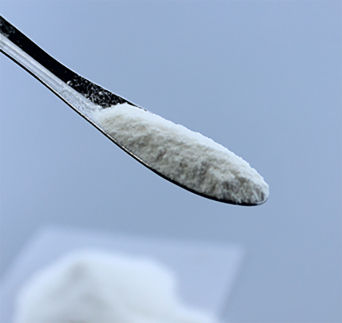
Նյմ . 08, 2024 20:52 Back to list
hydroxypropyl methylcellulose uses in tablets
Hydroxypropyl Methylcellulose A Multifunctional Ingredient in Tablet Formulations
Hydroxypropyl methylcellulose (HPMC) is a widely employed excipient in the pharmaceutical industry, particularly in tablet formulations. This semisynthetic polymer derived from cellulose exhibits a unique set of properties that make it an essential component in various medication types. In this article, we will delve into the significant uses and benefits of HPMC in tablet formulations, highlighting its impact on drug delivery and patient compliance.
What is Hydroxypropyl Methylcellulose?
Hydroxypropyl methylcellulose is a cellulose ether that is obtained by the chemical modification of cellulose. It is known for its solubility in both water and organic solvents, which imparts versatility in various formulations. HPMC is classified as a non-ionic polymer and is available in different viscosity grades, allowing formulators to select the appropriate type based on their specific needs in tablet applications.
Uses of HPMC in Tablets
1. Binders One of the primary roles of HPMC in tablet manufacturing is as a binder. It helps to hold the tablet components together, ensuring integrity and preventing disintegration during handling and storage. The binding properties of HPMC can support pelletization, improving compressibility and flowability, which are critical factors in the tablet production process.
2. Disintegrants HPMC can also function as a disintegrant, promoting the breakdown of tablets into smaller particles upon contact with fluids. This property is particularly beneficial in immediate-release formulations, where rapid drug release is desired. The use of HPMC enhances the tablet's ability to dissolve quickly in the gastrointestinal tract, allowing for faster absorption of the active pharmaceutical ingredient.
3. Controlled Release In sustained-release or controlled-release formulations, HPMC plays a vital role in modulating the drug release profile. Its hydrophilic nature allows for the formation of a gel-like matrix when hydrated, which controls the diffusion of the drug from the tablet. By adjusting the concentration of HPMC in a formulation, pharmaceutical scientists can achieve a desired release rate, leading to longer-lasting therapeutic effects and improved patient adherence.
hydroxypropyl methylcellulose uses in tablets

4. Stabilizer HPMC also serves as a stabilizer in suspensions and emulsions, ensuring uniformity and homogeneity of the drug formulation. This is particularly important for maintaining the drug's medicinal properties over time, preventing degradation due to environmental factors such as moisture and oxygen.
5. Coating Agent In some tablet formulations, HPMC is used as a coating agent. It can be applied to tablets to improve their aesthetic appeal and protect sensitive ingredients from environmental effects. Coatings can also mask the taste of the active ingredients, making the medication more palatable, especially for pediatric and geriatric populations.
Advantages of HPMC
The use of HPMC in tablet formulations provides several advantages. Its non-toxic, biodegradable qualities make it suitable for various pharmaceutical applications, including those aimed at sensitive patient populations. Moreover, HPMC does not interfere with the bioavailability of drugs, which is crucial for maintaining therapeutic efficacy.
Additionally, HPMC is recognized for its ease of use in manufacturing processes. It can be easily incorporated into dry powder blends and is compatible with a wide range of active pharmaceutical ingredients, making it a flexible choice for formulators.
Conclusion
Hydroxypropyl methylcellulose is an invaluable excipient in the development of tablet formulations. Its multifaceted roles as a binder, disintegrant, controlled-release agent, stabilizer, and coating agent, combined with its favorable properties, make it a staple in the pharmaceutical industry. As researchers continue to explore new pharmaceutical innovations, HPMC will undoubtedly remain at the forefront, contributing to the advancement of drug delivery systems and improving patient outcomes.
-
Versatile Hpmc Uses in Different Industries
NewsJun.19,2025
-
Redispersible Powder's Role in Enhancing Durability of Construction Products
NewsJun.19,2025
-
Hydroxyethyl Cellulose Applications Driving Green Industrial Processes
NewsJun.19,2025
-
Exploring Different Redispersible Polymer Powder
NewsJun.19,2025
-
Choosing the Right Mortar Bonding Agent
NewsJun.19,2025
-
Applications and Significance of China Hpmc in Modern Industries
NewsJun.19,2025







